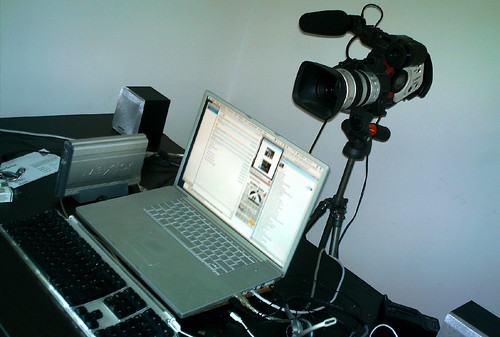Joining hands in skyping!!!
Last Monday our final Skype exchange with our Tulane peers was with VIDEO!!!
Since Sarah told us that our last exchange would have been with video, my first thought was not to come :-( Finally, I did obviously come! And I'm still exciting about it!!! It was really an instructive experience!
Since we've talked over Skype almost all the times with the same peer, we all were interested in meeting our peer ;-) We were skyping altogether in a big conference and, luckily, there was only one camera in the lab which was zooming in on the person who's speaking at that moment. At Tulane's they had one fixed camera so whenever they wanted to speak they had to move to their teacher's desk and take a sit down there.
At the very beginning of the conversation -I guess- we were all a bit embarassed by the camera: we broke the ice asking the Americans what their opinion was about Virginia Tech massacre. Since we all are university students, what happened on the american campus impressed us probably more than anyone else. We got into the gun control debate in the United States and I felt we were all not really confortable with the subject matter.
Sarah probably realized it as well as she promptly moved the conversation forward: we asked them something regarding the topics of our final presentations (i.e. something about their eating habits, their university system including the existence of fraternities and sororities, something about their national celebrations and even something about immigration down there) and the atmosphere became more friendly and relaxed.
Learning experiences made of feeling strong emotions and gathering knowledge at the same time are the most effective ones! Skyping with video is really one of these experiences which has enriched not only our English learning career but also our intercultural competence.
Alice




